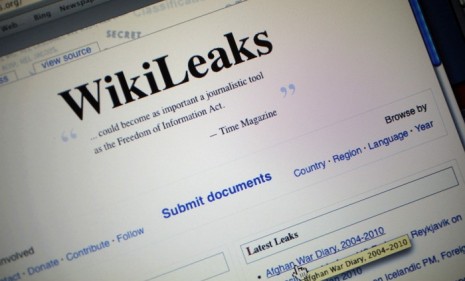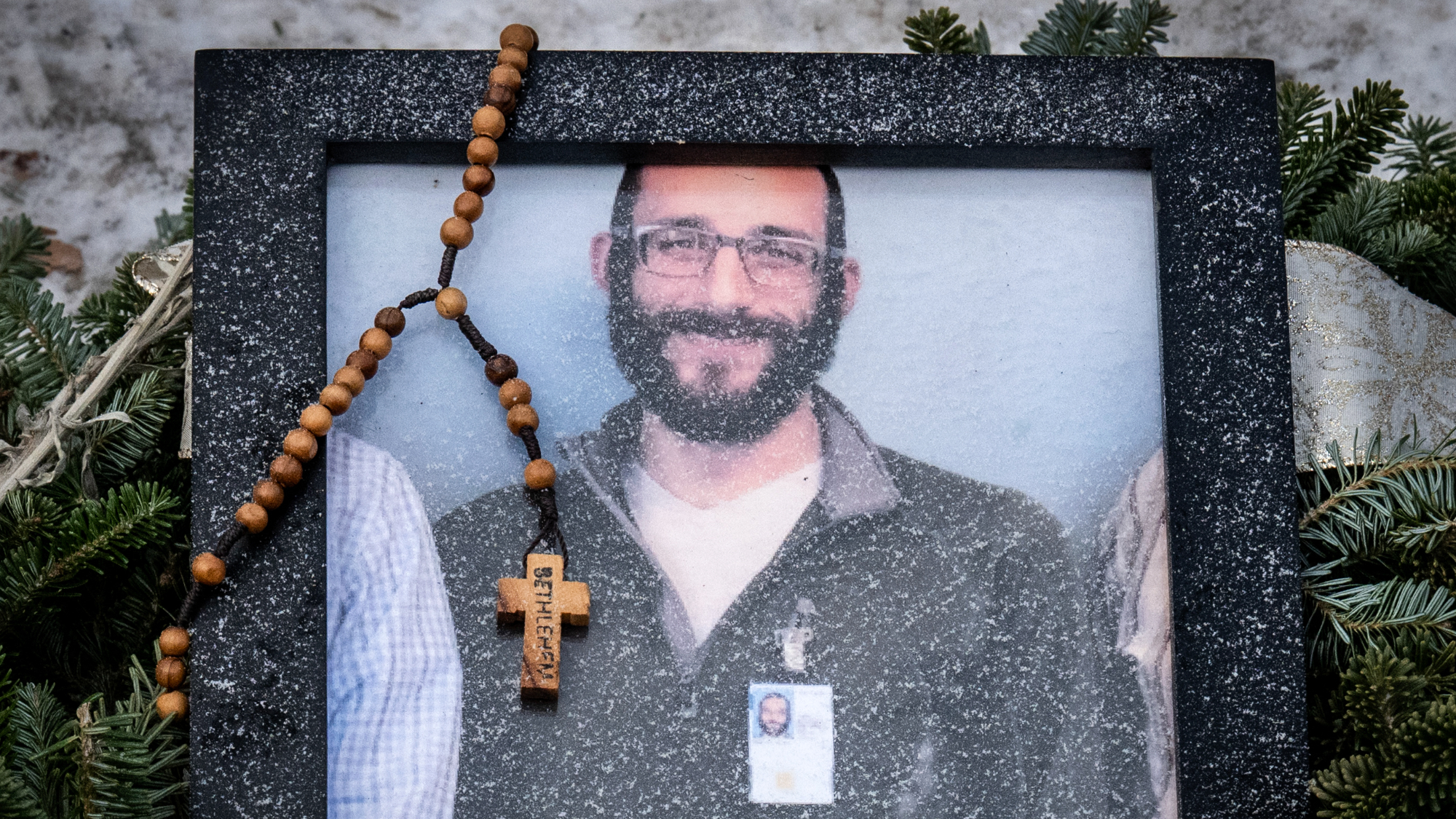WikiLeaks' biggest dump yet: What secrets will be revealed?
The whistleblower website is about to publish 500,000 classified documents about Iraq. How damaging will the leak be to the U.S. military?

The U.S. government is bracing for another massive document dump from whistleblower site WikiLeaks. The Defense Department has a 120-person team ready to pore through the new material — entailing as many as 500,000 documents — as soon as Wikileaks posts it online. (Watch a Fox News discussion about the leak.) The whistleblower is expected to release the classified information on Saturday, October 23. Here's an instant guide to what to expect:
What kind of documents is WikiLeaks holding?
Pentagon spokesman Col. David Lapan says most of the documents are probably "significant activities" reports, or SIGACTS, from the Iraq war, comprising "unit-level reporting, tactical reports, things of that nature," from 2004 to 2009. The Pentagon is not sure what documents are going to be released — reportedly in collaboration with The New York Times, Britain's The Guardian, and Germany's Der Spiegel, the same news outlets that cooperated in the July leak of 70,000 documents related to the Afghanistan war. Some large media outlets have had the documents since August.
The Week
Escape your echo chamber. Get the facts behind the news, plus analysis from multiple perspectives.

Sign up for The Week's Free Newsletters
From our morning news briefing to a weekly Good News Newsletter, get the best of The Week delivered directly to your inbox.
From our morning news briefing to a weekly Good News Newsletter, get the best of The Week delivered directly to your inbox.
Who leaked them?
The military, and media, are focusing on U.S. intelligence analyst Bradley Manning, already in custody for allegedly leaking video footage of U.S. Apache gunships shooting Reuters journalists and apparently innocent Iraqis. Manning has been charged in the WikiLeaks video case, but is so far only named as a "person of interest" in the Afghan War leaks.
What will we learn from the SIGACTS?
The documents will contain reports of insurgent attacks on U.S. and Iraqi security forces — and U.S. military actions that killed Iraqi civilians. Another key thing to look for, says Spencer Ackerman in Wired, is information on whether Iran helped insurgents develop and build IEDs, especially the deadly, cone-shaped "superbombs." Also keep an eye out for revelations on how the U.S. lost 200,000 assault rifles and pistols in 2004-05, lurking Abu Ghraib–style prison scandals, and details on what Bob Woodward called a "secret weapon" that helped turn the Iraq War around.
A free daily email with the biggest news stories of the day – and the best features from TheWeek.com
What is the U.S. doing to prepare for the leak?
The 120-member Pentagon response team has already flagged SIGACTS reports that, if released, would merit immediate action, such as protecting previously secret U.S. collaborators.
How badly will this damage U.S. national security?
Col. Lapan says the Pentagon and U.S. intelligence agencies can't be sure until they see the documents, but there is plenty of material that is "potentially damaging," even if WikiLeaks tries to redact the names of vulnerable informants. The bigger danger, says former U.S. counter-terrorism official Juan Zarate, is that it will have a chilling effect on inter-agency intelligence sharing and on collaboration with allied nations. With WikiLeaks around, "can you trust the U.S. government to not only hold information but to, you know, keep it safe?" he asks.
So, should we be worried?
Take all the warnings with a huge grain of salt, says Glenn Greenwald in Salon. With the Afghanistan leak, the media faithfully and "mindlessly" parroted the U.S. military's "thuggish" accusations about U.S. and Afghan blood being on WikiLeaks' hands. Then, quietly, after the desired PR effect, Defense Secretary Robert Gates admitted that there appeared to be no "sensitive intelligence sources and methods compromised by the disclosure."
What's next for WikiLeaks?
It is unclear, especially because of the "reports of internal chaos at WikiLeaks," says Philip Shenon in The Daily Beast. The website has been "undergoing scheduled maintenance" since late September, and the British site Moneybookers froze WikiLeaks' donations account in August. There has also been a small exodus of staffers, after reports of clashes with founder Julian Assange. On top of all that, Assange is facing possible (and possibly trumped-up) rape charges in Sweden. This all gives the Pentagon "reason to be heartened," says Shenon. But not cocky, add Kevin Poulsen and Kim Zetter in Wired. Not only is WikiLeaks sitting on plenty of secrets — it has a million bucks left in its coffers.
Sources: Reuters, AFP, Wired (2), Daily Telegraph, Salon, Daily Beast
This story was originally published on October 18, and re-published with amendments on October 22
-
 China’s Xi targets top general in growing purge
China’s Xi targets top general in growing purgeSpeed Read Zhang Youxia is being investigated over ‘grave violations’ of the law
-
 Demands for accountability mount in Alex Pretti killing
Demands for accountability mount in Alex Pretti killingSpeed Read Pretti was shot numerous times by an ICE agent in Minneapolis
-
 Will Nigella be the secret ingredient to revive GBBO?
Will Nigella be the secret ingredient to revive GBBO?Talking Point Lawson will bring yet more ‘eye-twinkling double entendres’ to a show that some say has ‘lost its way’